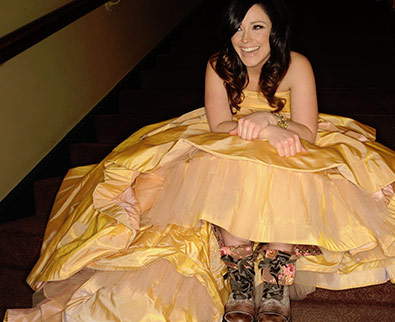- (Courtesy of Joyce Meyer Ministries)

That's why it is so important to focus on establishing healthy habits. Bad habits are detrimental and keep us from enjoying all that God has for us. However, good habits add joy, peace and purpose to our lives.
Now, I'm not going to tell you that it's easy. If we're going to make a good habit and break a bad habit, there's going to be some effort involved. We will go through a time of trial. But we don't have to go through it alone…
It's very important to understand from the beginning that we need God's help to succeed. The number one mistake people make is that we try to change ourselves…we forget that we can't do it without God!
Jesus said that when He went away, He would send the Holy Spirit to help us. The Amplified Bible refers to Him as "the Standby" (John 16:7). I love that. God is always standing by in case we get ourselves into trouble and need a little help. He is our Partner – our Strength and Support – as we begin to establish good habits in our lives and break the bad ones.
Where We Start and Where We Finish
I used to have a habit of getting upset every time I didn't get my way. It was an automatic response – and I lived that way for many years until I finally decided to stop and allow God to help me in that area.
Today, I want to encourage you to make some decisions of your own. Think about the person you are right now and the person you want to become, and then jot down a few new habits that can help you get there.
Remember, one good choice is another step closer to your goal.
One Scripture I've found to be most helpful in this area is Romans 12:21. It says, Do not let yourself be overcome by evil, but overcome (master) evil with good (AMP).
In other words, don't dwell on your bad habits. Instead, put all of your focus and concentration on making good ones. Because when we think about all the bad habits we've got to try and undo, it zaps all of our strength. If we're going to make progress, we need to learn to focus on the positive!
Similarly, the Bible tells us that by walking in the Spirit, we overcome the flesh (see Galatians 5:16). The "flesh" is simply our human nature apart from God.
Do everything you can to consistently follow the leading of the Holy Spirit. Read the Word and meditate on it. Set aside time for prayer. Get around people who will encourage you to do what God's asking you to do. Don't give yourself the time or energy to do what your flesh is pleading with you to do.
If you make a quality decision to act, it will change your life. But you can't wait to feel like it. With God's grace, just set your mind to do it!
How Long Does It Take to Form a Habit?
Some people say it takes twenty-one days to form a habit. Others say it takes thirty days. So let's just say that anything you do (or don't do) repeatedly for a period of time becomes a habit.
I used to smoke many years ago. And when God started convicting me to quit, I didn't want to do it – and it was very hard for me to stop. In fact, it took several attempts to quit before I broke this habit.
When I reached the point of sheer determination to quit, the first day was bad. And the second day wasn't much better! I managed to make it to the weekend, but then Dave and I had an argument at a picnic and I ended up leaving by myself to go buy a pack of cigarettes. My plan was to smoke the entire pack.
You see, when we're trying to form a new habit, we usually reach what I call a "crisis point."
That day at the picnic, I reached my crisis point. After I got those cigarettes I sat there and thought, If I smoke these right now, I'll likely be doing it the rest of my life and I'm not going to do that. So I took every single cigarette out of the package and threw them in the toilet.
Every now and then, I'd still think: I want a cigarette. But after about thirty days, I could tell my desire to smoke had changed. I just didn't want to do it. And I've never smoked another cigarette again.
Taking That First Step
Some habits in our lives can seem overwhelming and impossible to change – especially if we have lived with them for a long time. But God will meet us where we are. When we are willing to take that first step, He honors our faith and gives us the grace to make the changes that we desire.
Things may not turn around overnight, but if you are diligent and determined to never give up, you will succeed…because together, one day at a time, you and God can do anything.
Joyce Meyer is a New York Times bestselling author and founder of Joyce Meyer Ministries, Inc. She has authored more than 90 books, including Battlefield of the Mind and Do Yourself a Favor…Forgive (Hachette). She hosts the Enjoying Everyday Life radio and TV programs, which air on hundreds of stations worldwide. For more information, visit www.joycemeyer.org.
 (Photo: Reuters/Azad Lashkari)
(Photo: Reuters/Azad Lashkari)



